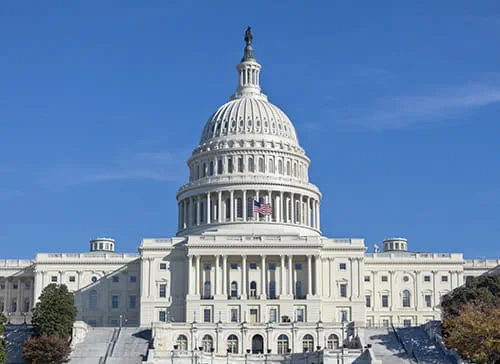
This year has been eventful in the laboratory medicine policy sphere, with several significant implications for ADLM’s advocacy work. As 2024 began, the laboratory community was closely monitoring and advocating against the Food and Drug Administration’s proposed rule which would unilaterally impose its own duplicative oversight framework for laboratory-developed tests (LDTs). In May, the FDA issued the final rule on LDTs, igniting concern among the laboratory and healthcare community, as well as members of Congress, about the potential impact on patient care and operational burdens.
FDA regulation of LDTs
ADLM’s advocacy against the FDA rule has been proactive in highlighting the challenges patients and healthcare providers will face if the rule goes into effect. The association recently conducted a survey among clinical laboratories to gather feedback on the rule’s impact, which revealed significant problems, particularly around the rule’s complexity and the potential for increased costs and decreased availability of critical tests. More than 70% of surveyed laboratories indicated they lack the resources to comply with the new requirements, leading many to consider discontinuing certain LDTs.
In response, ADLM has been engaging with key congressional offices to advocate for maintaining the current regulatory framework under the Clinical Laboratory Improvement Amendments (CLIA), which has effectively ensured the quality and safety of laboratory tests for decades. The association’s leaders have been vocal in their opposition to the FDA’s proposed changes, emphasizing the risks of stifling innovation and increasing healthcare costs.
Reimbursement and healthcare quality
ADLM has endorsed the Saving Access to Laboratory Services Act (SALSA), which aims to mitigate the adverse effects of payment cuts under the Protecting Access to Medicare Act (PAMA). SALSA proposes a reform in the rate-setting methodology, ensuring that payment data from hospitals and physician office laboratories is considered, thus providing a more accurate reflection of the costs incurred by these smaller entities.
The association has also continued its advocacy for better pediatric reference intervals (PRIs). ADLM leads a coalition urging Congress to provide increased CDC funding to improve diagnostic accuracy and treatment for children. The agency has the infrastructure in place and can launch the initiative ith $10 million in additional resources for its environmental health laboratory. The push to secure this funding in the fiscal year (FY) budget has garnered widespread support from 42 healthcare providers, laboratory organizations, and in vitro diagnostics (IVD) manufacturers.
ADLM also remains at the forefront of efforts to secure additional congressional funding for laboratory test harmonization. Since FY 2018, these efforts have secured $2 million annually, enhancing the detection and management of disease. ADLM and a coalition of 28 healthcare organizations and IVD manufacturers joined in urging Congress to increase this allocation to $9.2 million to further harmonization in FY 2025.
Moreover, ADLM has joined forces with other stakeholders to advocate for bolstering the nation’s public health infrastructure. The association is lobbying for sustained funding for the CDC’s Advanced Molecular Detection Program and other public health workforce programs. These efforts focus on dealing with workforce shortages and enhancing the CDC’s capacity to prevent and respond to infectious disease outbreaks using cutting-edge science.
ADLM’s commitment to its members, the broader laboratory community, and patients remains steadfast. The association anticipates a year of robust advocacy—from visits to Capitol Hill to grassroots digital engagement—continually working towards a healthcare system that is better equipped and more responsive to patient needs.
Learn more about advocacy-focused education at ADLM 2024, including a special session on LDTs.
